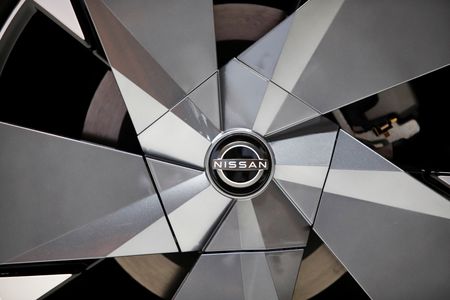 1
1 1
1


By Gilles Guillaume
PARIS (Reuters) – Renault and Nissan hailed a new deal announced on Monday as a major step in reviving their two decade alliance. But for the French car group the benefits of the revamp are for now unclear and potentially quite limited, three industry sources said.
The deal, months in the making and still subject to board approvals, will see Renault reduce its stake in Nissan to 15% from around 43%.
For Nissan, the advantages are clear: the Japanese carmaker gets much freer rein to do what it wants, and it is no longer in an alliance of unequal partners as capital ownership is rebalanced. That said, its stock could be weighed down as the bulk of Renault’s current stake – worth some 3.8 billion euros ($4.1 billion) and moved to a trust – is sold off.
The deal sees Nissan commit to invest in Renault’s flagship Ampere electric vehicle unit, which was the French group’s key goal.
But Nissan’s participation in Ampere is fairly conditional, joint projects at this stage are vague, and the Japanese carmaker acquiring voting rights on its 15% stake in Renault – something it didn’t have before – means the French group will have to share decision-making more.
Sources have told Reuters the alliance is considering around five common projects, a relatively small number compared to the list of 10 to 15 proposed last year by Renault chief executive Luca de Meo to his Japanese partner.
“Beyond the financial aspect, there is currently not much concrete on the benefits of the deal for Renault,” one of the sources said, speaking on condition of anonymity due to the sensitivity of the matter.
“It is interesting for Renault to see Nissan enter Ampere, if only for financing projects. It is also interesting to see the focus on Latin America and India, again for scale effect. But no figures are given, it remains very vague.”
Shares in Renault dropped after the deal was announced.
Gregoire Laverne of Cesga asset management, a Renault shareholder, said the market needed to know more. “And in a way it (the deal) marks the failure of the first version of the alliance,” he said.
More details will be unveiled in London on Feb. 6, sources close to the matter said.
‘CONDITIONAL’
The Renault-Nissan alliance, which also includes junior partner Mitsubishi Motors Corp, was deeply strained by the 2018 ouster of its architect and former chairman, Carlos Ghosn, amid financial scandal. Ghosn has denied wrongdoing.
The real test of the new deal, the sources said, will be Ampere.
An early mover in electric cars, Renault has fallen behind newer, more agile rivals such as Tesla.
It is counting on Ampere, which it will separate from its traditional internal combustion engine business and list on the stock market for a valuation of as much as 10 billion euros, to present itself as a pure electric player and get back into the race.
“If Nissan puts money and resources into engineering – technologies and teams – that would be a pretty good sign, the alliance will at least partially continue, but for now it’s only conditional,” a second industry source said.
The operational projects to relaunch the partnership were barely sketched out on Monday.
The companies highlighted Latin America, India and Europe – where they already have factories and joint production – as areas where they were considering projects related to markets, vehicles and technologies.
“With Nissan recovering its voting rights at Renault, it means that the alliance is now strictly limited to the goodwill of the Japanese side,” the second source said.
Analysts seeking less complexity from Renault were disappointed in November when de Meo said he would split the French carmaker into five autonomous businesses.
And Renault has announced plans to strengthen ties with China’s Geely Automobile Holdings, which will take a big stake in Renault’s combustion engine unit, Qualcomm and Google.
Nissan, which sources have said is wary of sharing its technology with too many outsiders, may find the new set-up too much of an open relationship.
After rising more than 20% since the start of the year, Renault’s shares were down over 3% in afternoon trading.
Ion-Marc Valahu at Clairinvest, also a Renault shareholder, said that “had to do with the fact that Renault did not give an update on their when will they sell their stake (in Nissan) and how the different divisions within Renault will be implemented.”
($1 = 0.9185 euros)
(Reporting by Gilles Guillaume; Writing by Ingrid Melander; Editing by Silvia Aloisi and Mark Potter)